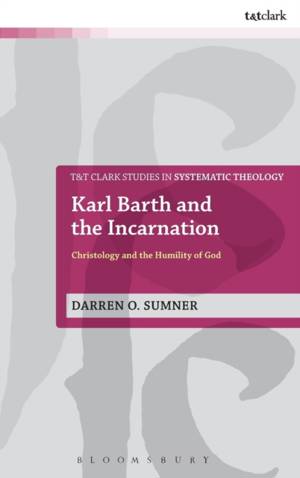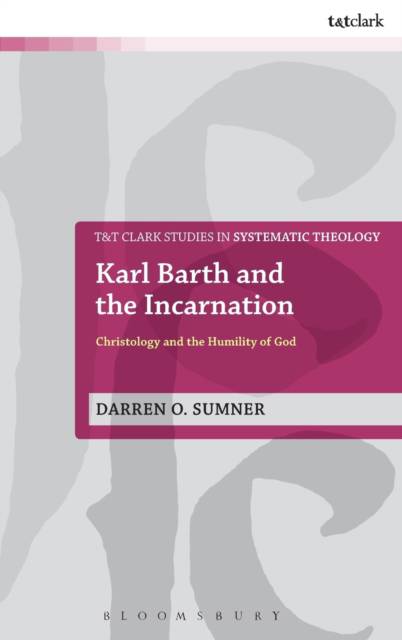
Bedankt voor het vertrouwen het afgelopen jaar! Om jou te bedanken bieden we GRATIS verzending (in België) aan op alles gedurende de hele maand januari.
- Afhalen na 1 uur in een winkel met voorraad
- In januari gratis thuislevering in België
- Ruim aanbod met 7 miljoen producten
Bedankt voor het vertrouwen het afgelopen jaar! Om jou te bedanken bieden we GRATIS verzending (in België) aan op alles gedurende de hele maand januari.
- Afhalen na 1 uur in een winkel met voorraad
- In januari gratis thuislevering in België
- Ruim aanbod met 7 miljoen producten
Zoeken
€ 296,95
+ 593 punten
Omschrijving
This work demonstrates the significance of Karl Barth's Christology by examining it in the context of his orientation toward the classical tradition - an orientation that was both critical and sympathetic. To compare this Christology with the doctrine's history, Sumner suggests first that the Chalcedonian portrait of the incarnation is conceputally vulnerable at a number of points. By recasting the doctrine in actualist terms - the history of Jesus' lived existence as God's fulfillment of His covenant with creatures, rather than a metaphysical uniting of natures - Barth is able to move beyond problems inherent in the tradition.
Despite a number of formal and material differences, however, Barth's position coheres with the intent of the ancient councils and ought to be judged as orthodox. Barth's great contribution to Christology is in the unapologetic affirmation of 'the humanity of God'.
Despite a number of formal and material differences, however, Barth's position coheres with the intent of the ancient councils and ought to be judged as orthodox. Barth's great contribution to Christology is in the unapologetic affirmation of 'the humanity of God'.
Specificaties
Betrokkenen
- Auteur(s):
- Uitgeverij:
Inhoud
- Aantal bladzijden:
- 256
- Taal:
- Engels
- Reeks:
- Reeksnummer:
- nr. 27
Eigenschappen
- Productcode (EAN):
- 9780567655288
- Verschijningsdatum:
- 20/11/2014
- Uitvoering:
- Hardcover
- Formaat:
- Genaaid
- Afmetingen:
- 156 mm x 234 mm
- Gewicht:
- 539 g

Alleen bij Standaard Boekhandel
+ 593 punten op je klantenkaart van Standaard Boekhandel
Beoordelingen
We publiceren alleen reviews die voldoen aan de voorwaarden voor reviews. Bekijk onze voorwaarden voor reviews.









